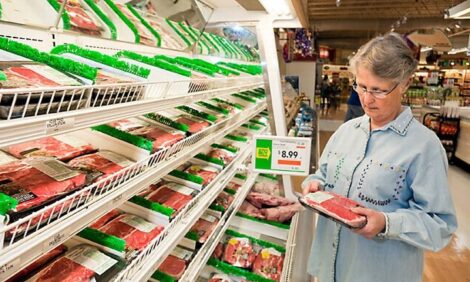



What Could Climate Change Mean for Agriculture?
GLOBAL – World agriculture must create short and long term adaptation strategies to cope with climate change accelerating the water cycle.This is the finding of an Organisation for Economic Co-operation and Development (OECD) report that sees rainfall periods being longer and more intense in the years to come.
The recent paper Impact of Climate Change on the Water Cycle and Implications for Agriculture has tipped higher latitude areas for more rain in winter and summer.
Drier summer weather is expected for mid-latitude and subtropical areas.
Coping With Less Water
• Long term solutions will need to continuously adapt farming to water supply conditions against a backdrop of population growth, climate change and increasing urban demand.
• Shorter term measures need to cope with ‘intra-seasonal volatility' of water supply. This means reallocating water for efficient use through the growing season.
Coping strategies include more risk management, compensation and insurance, which will provide a ‘major role’ in managing the risk of floods and droughts, the report said.
Improved irrigation techniques, water storage and more resilient crop and livestock systems must adapt to other water users. This means fitting in with industrial and urban uses, as well as ecosystems.
OECD analysts stressed open trade as an ‘important vehicle’ to reflect the changing competitive advantage of economies as climate alters.
This will ensure that yield losses can be offset through imports.
Similarly, adaptive storage may evolve to ‘buffer’ through commodity volatility, of both output and prices.
The report said: “Considering agricultural water management without taking into account climate change is not a realistic option.
“Beyond water efficiency in agriculture, the challenge also resides in building agricultural systems that are less dependent on water resources on the whole.”
Lessons Learned: The Dustbowl
The bigger picture entails 1.8 billion people living in countries of regions with ‘absolute water scarcity’, according to OECD spokesperson Patrick Love, in a preview of the report.
A further portion could be living in water 'stress' conditions, perhaps as high as two thirds.
He warned that ‘rain follows the plough’ is a false phrase and cited the Oklahoma dustbowl as an example of how badly things can go wrong.
“In many areas today, there is no such thing as a “natural” landscape,” said Mr Love. “Thousands of years of farming have selected and encouraged some species, marginalised or eliminated others.
“The land itself has been altered by ploughing, enclosure, herding and other human interventions. We may feel that we have tamed Nature. Reports like this new one from the OECD remind us of our ignorance and warn us about our arrogance.”








